Today is another predawn adventure.
A small team of 7 shore explorers visit Cyrene Reef this morning.
This is my second time to Cyrene, but it is my first time landing in the dark.
Furthermore the tide was still high (but receding) when we reached Cyrene.
Sun rise at Cyrene reef is always spectacular.
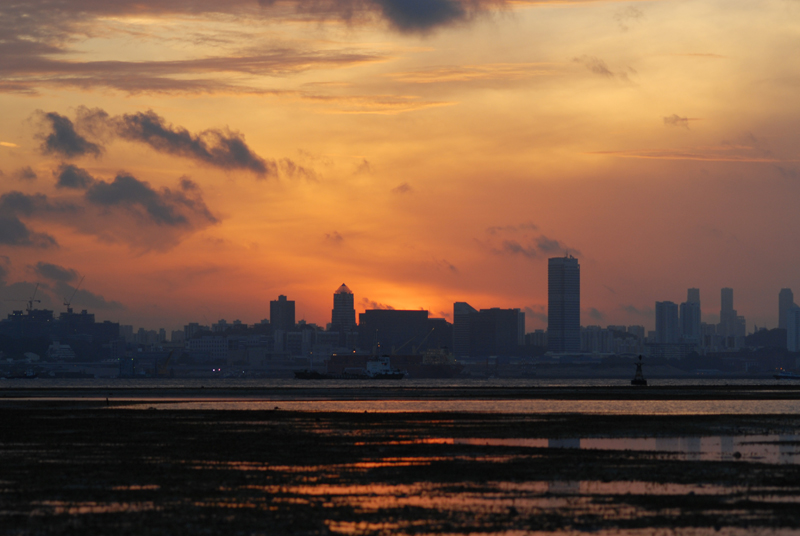 |
| Sunrise at Cyrene reef |
Although the high was still high, the highest point of the sand bar has already expose itself. That is best place to place out life vests.
Today I decided to start from the southern part of the reef, walking eastwards, north then westward, forming the shape of a horseshoe.
It was difficult to shoot when the tide is high but soon after the tide went down and the team was out searching for critters.
My first find was a
reef bristleworm (
Eurythoe complanata).
 |
| Reef bristleworm |
It was sticking out of its hole and later I observe it pulling one of the materials it has used to surround its worm hole. Perhaps it was trying to neaten its hole.Near to the worm, a shy snapping shrimp was hanging out at its entrance only revealing its pincers.
 |
| Snapping shrimp |
Another kind of worm I saw was the red ribbon worm. Part of the worm was out, possibly looking for food. This worm can retract quickly when it senses danger or disturbance. 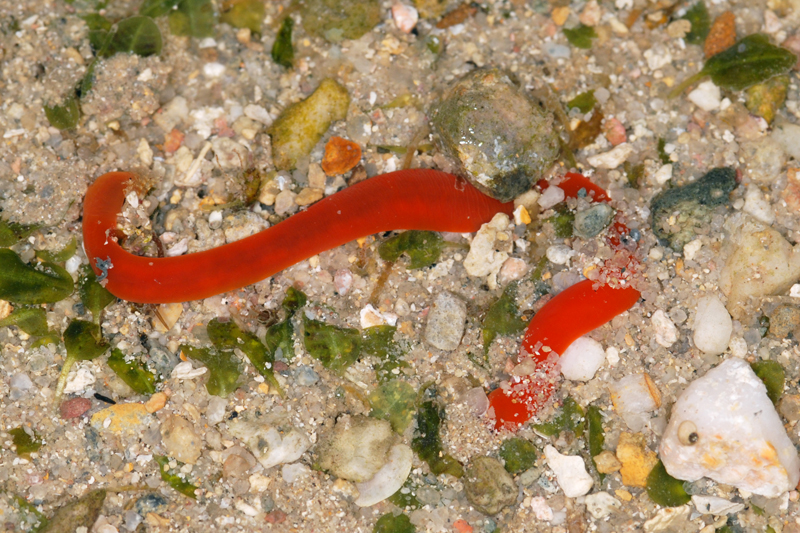 |
| Red ribbon worm |
An empty snail shell has a another kind of usage other than being occupied by hermit crabs. While walking and looking around, I notice this pretty snail shell and tried to pick it up only to release that it is tightly glued onto other shore materials.  |
| Snail shell stuck onto other materials |
It looked like the construction work of some worm.There were many different types of snails found on the reef. There are many snail shells that moved quickly on the sandy reef. These shells are occupied by tiny hermit crabs. The shells with real snails inside moved very slowly or hardly move at all. There will be some suction tension when you try to lift them from the surface.
Let's look at the snails I saw today.
Round periwinkle snail (
Echinolittorina vidua)?
 |
| Underside |
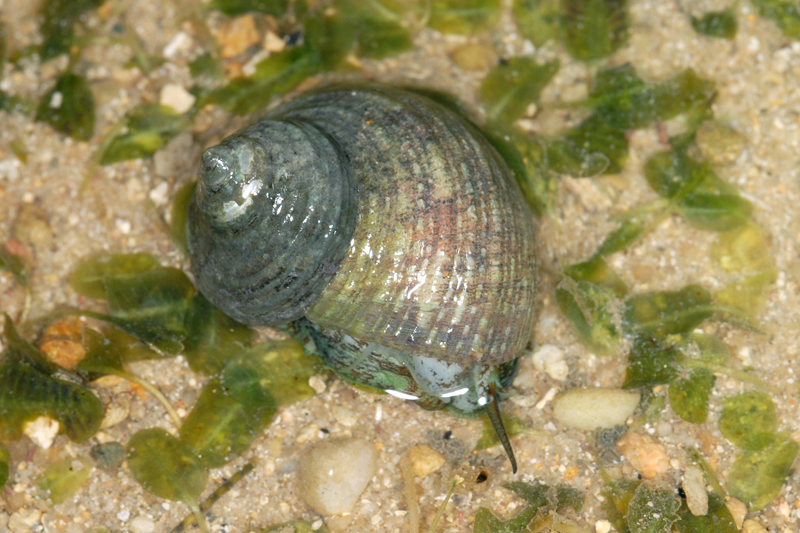 |
| Side profile |
China moon snail (
Natica onca)
Oval moon snail (
Polinices mammilla). Mammilla means 'breast' in Latin.
 |
| Underside |
 |
| Moon snail opening its operculum |
 |
| Side profile |
 |
| Two oval moon snail side by side |
Variegated sundial snail (
Heliacus variegatus) empty shell.
 |
| Empty shell |
Unknown shell found on blades of seagrass. There were a few of them found on seagrass blades.
Grey bonnet snail (
Phalium glaucum)
In a shallow pool with hole, there were 4 gobies resting outside the hole.
 |
| By the side of the hole |
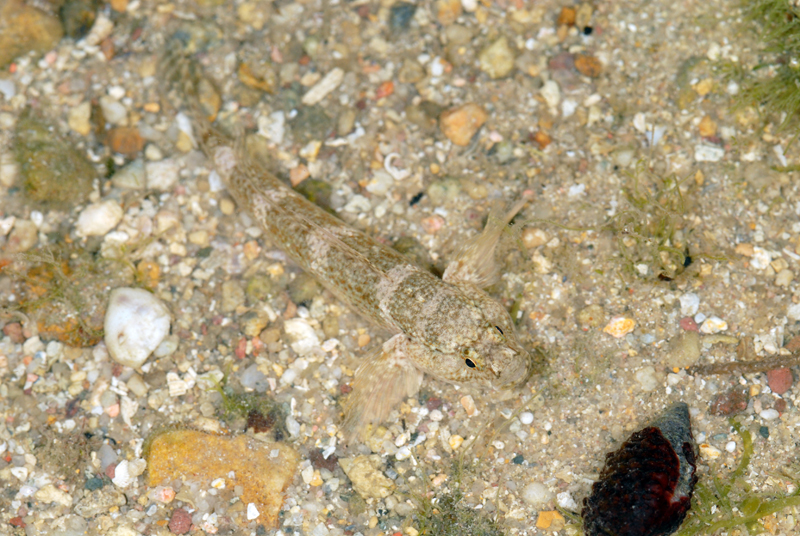 |
| Out of the hole for me to take picture. |
I also saw a octopus hiding in a burrow.
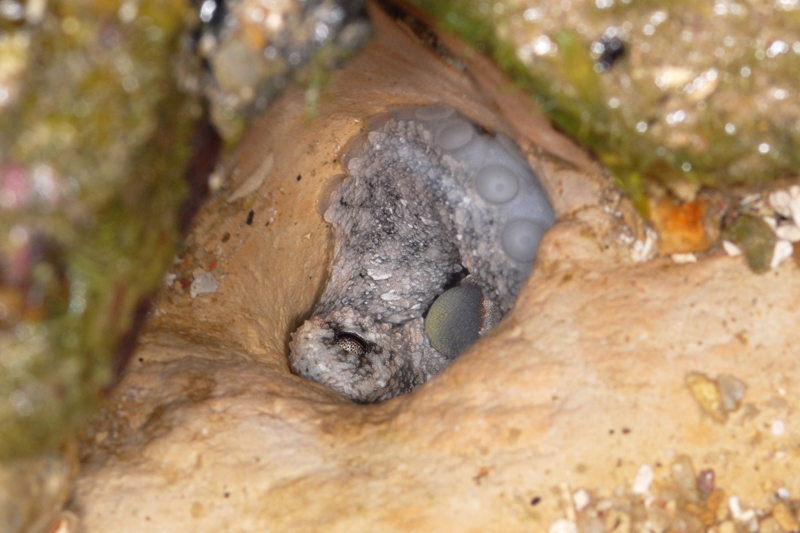 |
| One of the tentacles of the octopus |
I even see a small squid swimming on the water surface. It is about the length of one segment of my pinky finger. It is a
pygmy squid (
Idiosepius sp.)!
 |
| Tiny squid |
On the southern side of the reef, there were many fan worms showing their pretty "fans".
There are a few variety of corals on this southern part of the reef. Oh no! I saw a large coral with heavy bleeching. It was upsetting to find half of this huge coral bleeched.
 |
| Bleeching coral |
Predawn trip to Cyrene reef means we get to see the sun rising from mainland Singapore. It is a spectacular scene to watch the sun rise from the back of the tall buildings.
 |
| Silhouette of buildings |
 |
| Sun rise in Cyrene reef |
When the sun is up, large container ships are seen passing by this channel. Look at how small Alex's Boon Teik from
Summit Marine is as compared to Maersk Line.
As usual, I found a number of suspicious moving coral fragments with the unknown crab carrying it. One of the coral fragment was overturned and I stood there looking at the crab out of its "home". After some wait time, the crab came down its "home" and flipped it over. Then it went under the coral fragment to carry it. Such an amazing observation.
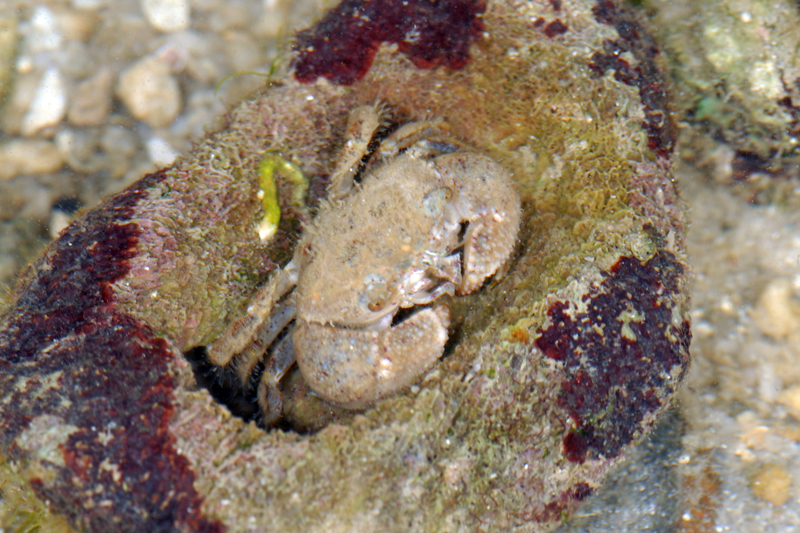 |
| The crab waiting on its overturned "home" to ensure that it is safe to turn it over. |
After observing the above crab, the fish resting next nearby caught my eyes. I made an attempt to direct it into my container by it disappeared quickly and I could not see where it swam to. :(
But I took a shot before my attempt to catch it. I am not sure what fish this is.
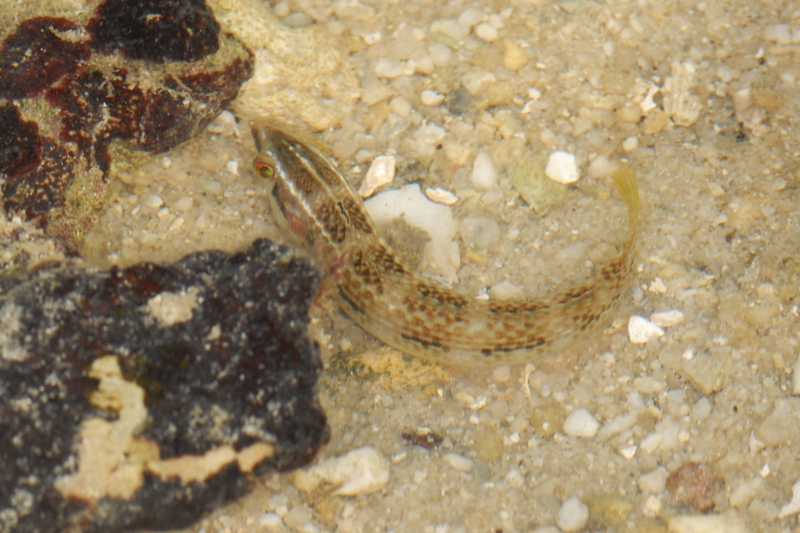 |
| Unknown resting fish |
I name Cyrene reef the land of sea stars. There are plenty of
common sea stars (
Archaster typicus) and
knobbly sea stars (
Protoreaster nodosus) on Cyrene.
There were some knobbly sea stars broken arms and new arms are growing. They were the first few knobbly sea stars I encounter today.
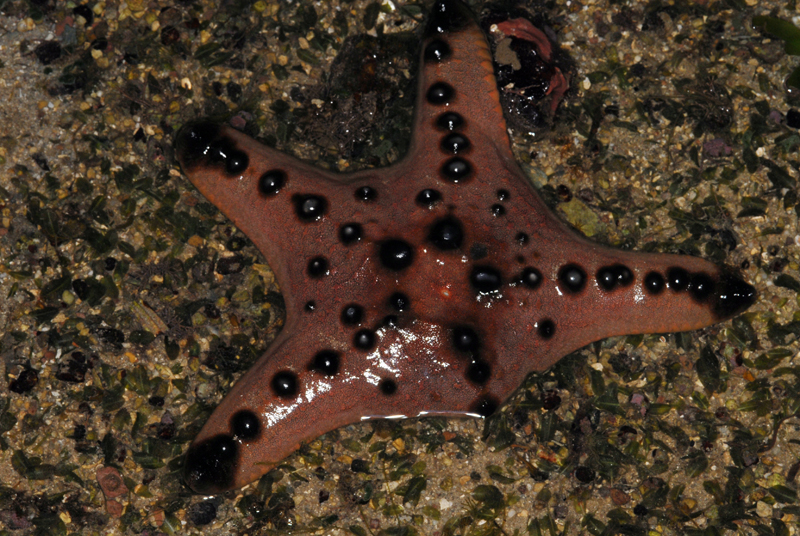 |
| One damaged arm. |
 |
| 3 damaged arms. |
It made me feel sad to see "handicapped" knobbly sea stars. But their arms are regenerating. The ability for sea stars to regenerate their arms made me felt better. After counting up to 40 knobbly sea stars on the southern side, I felt very happy.
In one of the knobbly sea stars which I turned over, its stomach was exposed. Realising that it is being turned over, it quickly retract its stomach back in. It looks it it was in the process of enjoying its meal when I happened to disturb it. Opps.
 |
| Retracting its stomach. The right part is its food? |
 |
| The "food" sinking into the stomach. |
Of course, the area of knobbly sea star is located on the northern side.
 |
| Medium size knobbly sea star |
As the sun rises so does the temperature. It was a rather hot day. Even the knobblies out of water could not take the heat and start to curl up in awful positions.
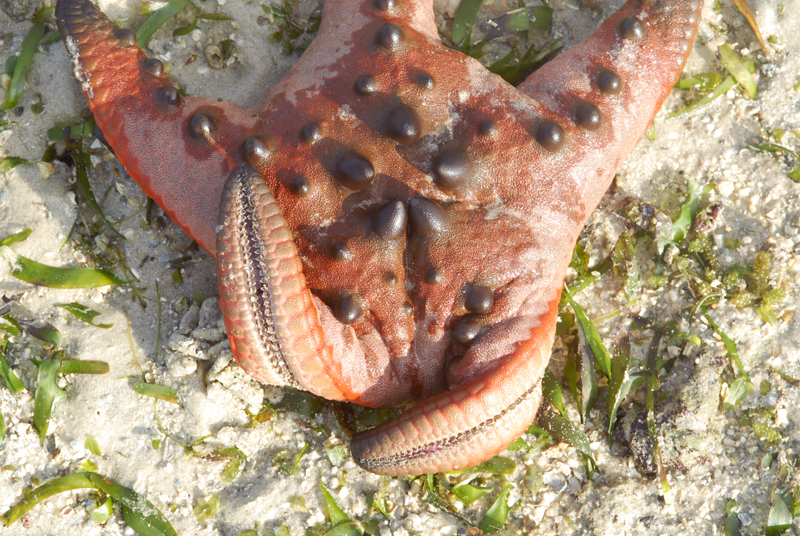 |
| Leg raise |
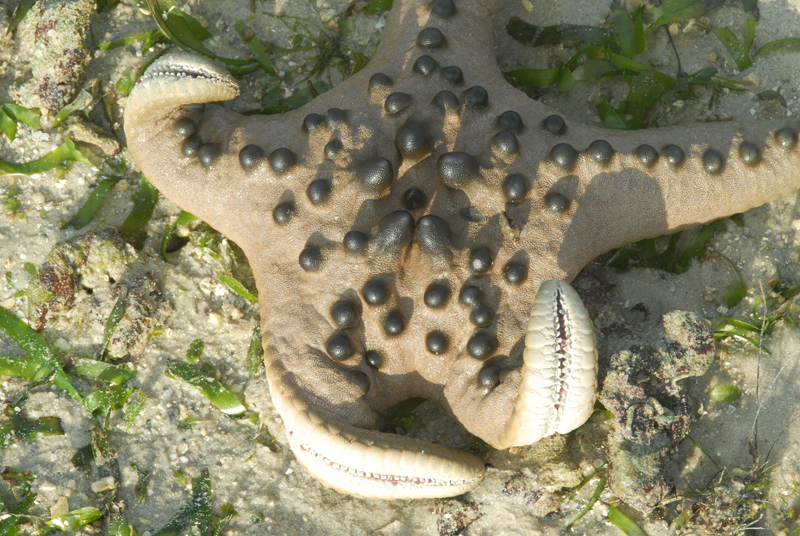 |
| To the right |
 |
| Curl 1 |
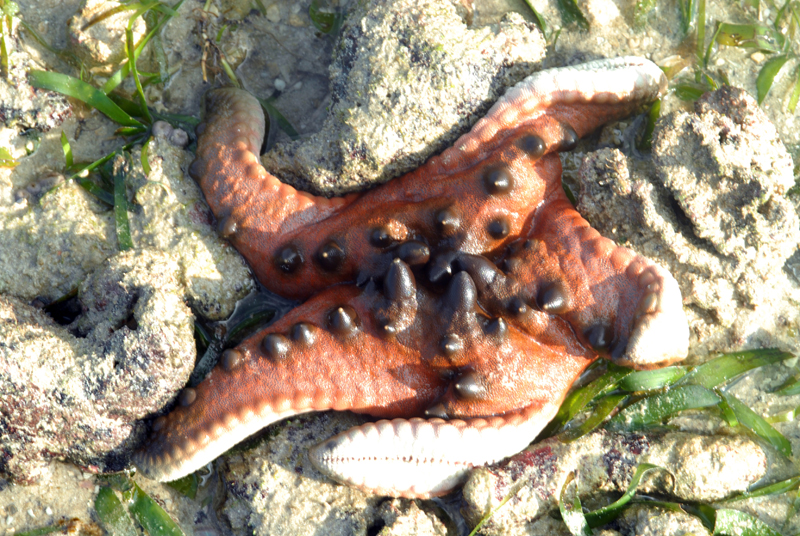 |
| Curl 2 |
The other critter that made me happy today will be the
Pantaceraster sea star (
Pantaceraster mammilatus) shared by Kok Sheng. It was my wish list before the trip and it was satisfied. I not only see one but a few after that.
 |
| Greenish body with yellow bums |
 |
| Close up |
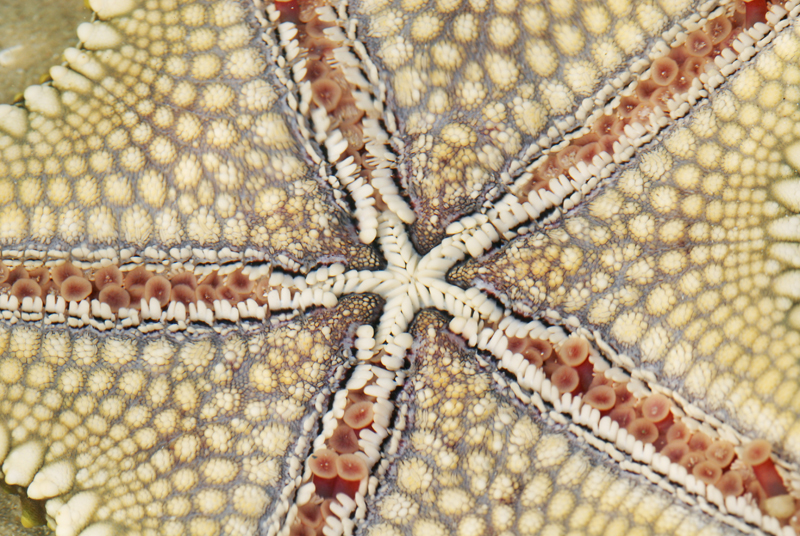 |
| Underside |
 |
| Arm underside |
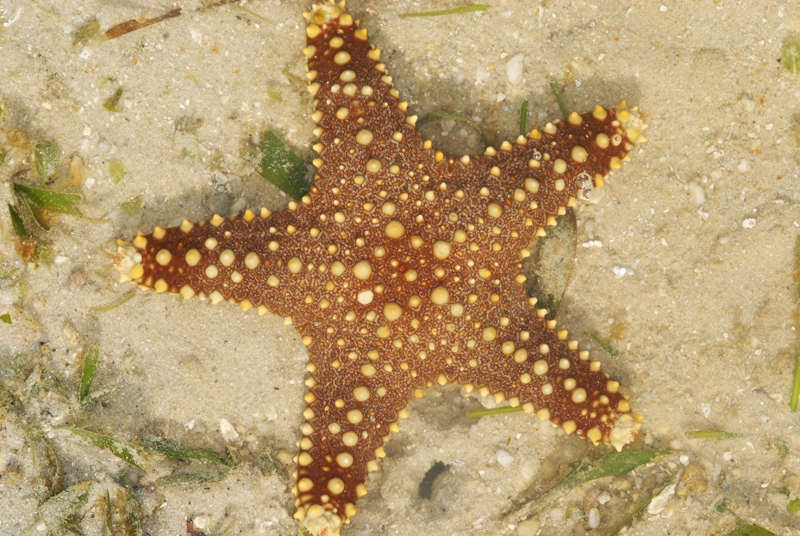 |
| Red body with yellow bum |
Is this another species of Pantaceraster? Its underside looks different from the above pantaceraster.
 |
| Top view |
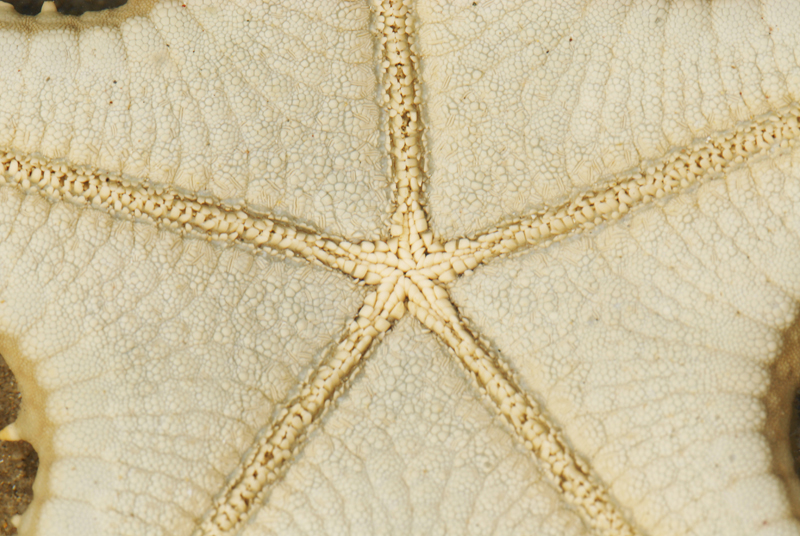 |
| Underside |
As a comparison, we have three sea stars near each other.
 |
| 3 sea stars |
The last few critters found by the team will be the
blue dragon nudibranch (
Pteraeolidia ianthina) and a
brown sea cucmber (
Bohadschia vitiensis).
 |
| Blue dragon nudibranch |
The brown sea cucumber was rather stressed when Marcus dug it out and it released sticky white cylindrical tubes (Cuvierian tubules). Marcus' finger was stuck with strands of the tubes and he had some difficulty removing them.
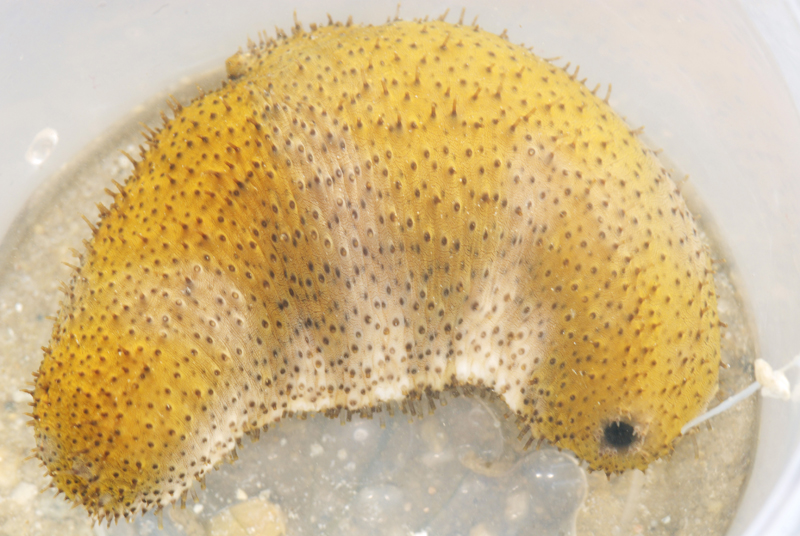 |
| Brown sea cucumber |
During this trip, I found a fishing trap and there were fish trapped inside. As I approach the fish trap, a medium size stingray was panicking around in the trap. I had never destroy fish traps before and neither do I have the correct tools to do it. So I leave it to Russel, who much later saw the trap and destroyed it.
Soon it was time to leave.
As we head back to the landing point, I spotted a big fish swimming in the lagoon and I shouted "Shark!". A black-tipped reef shark swam by and it got everyone excited. Russel commented that he saw 4 sharks while he was exploring the lagoon area.
The weather was really hot today and it depleted my energy very quickly. Many of images shot after sun rise was done rather haphazardly. Looking forward to my next trip to Cyrene!

















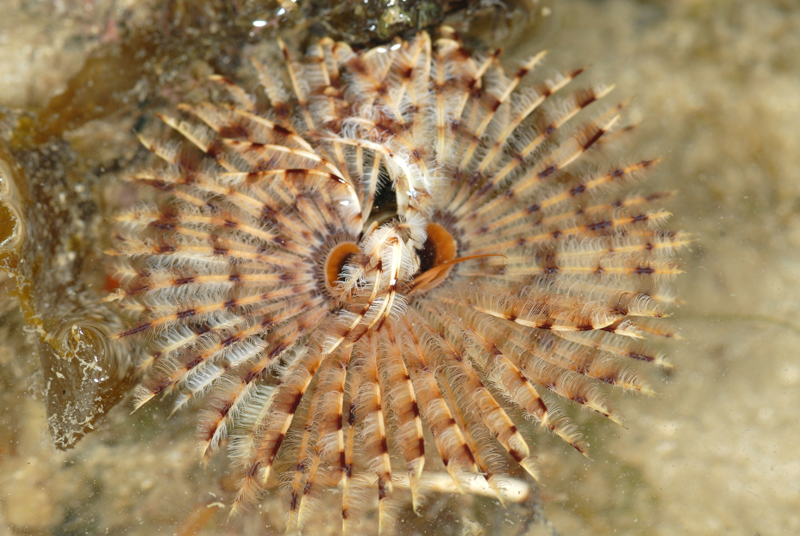
























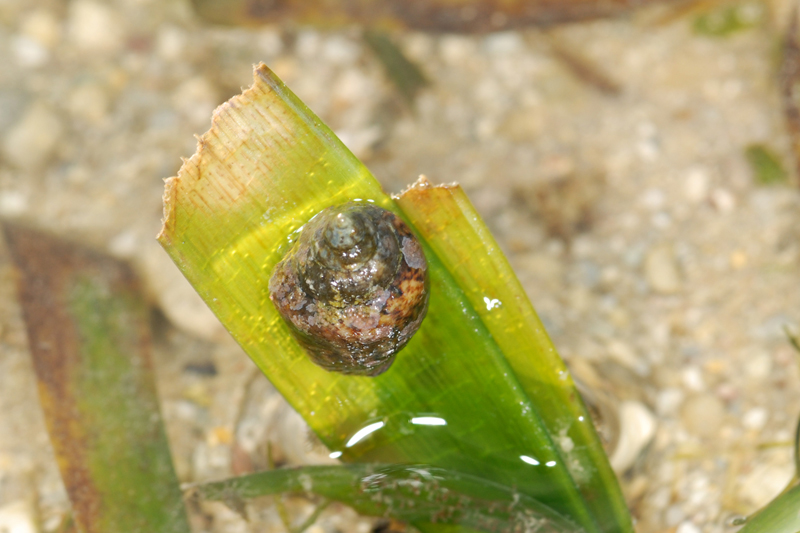


No comments:
Post a Comment